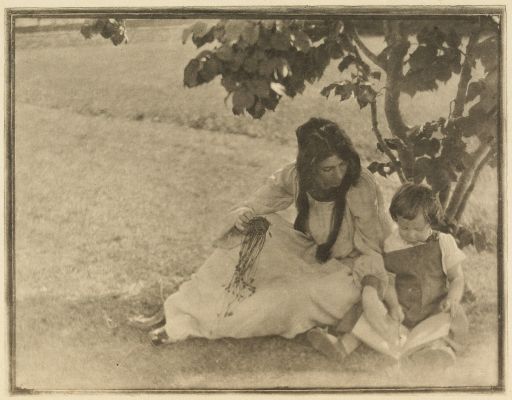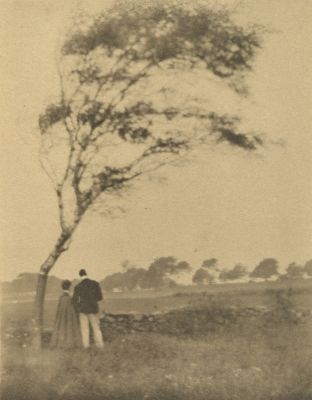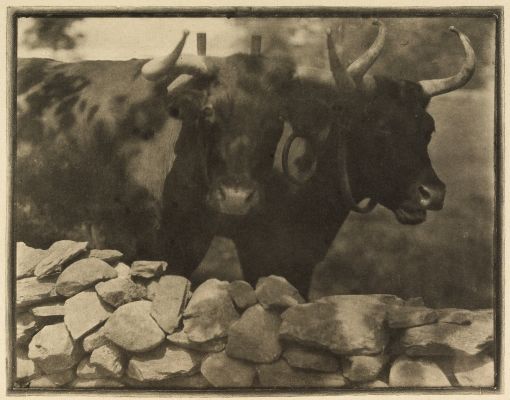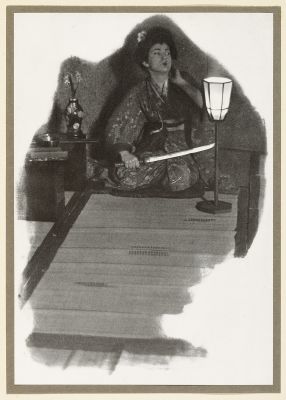
Title
Happy DaysArtist
Kasebier, Gertrude (American, 1852-1934)Publication
Camera Work XDate
1905Process
PhotogravureAtelier
Manhattan Photogravure Company, NYImage Size
19.7 x 15.7 cm
Gertrude Kasebier easily ranks as the foremost woman photographer at the turn of the century. As a pictorialist, she was a founding member of Stieglitz’s elitist Photo-Secession, and as a commercial photographer, she maintained a portrait studio in New York for thirty years. The premier issue of Camera Work featured her work, with an appreciation by Charles H. Caffin in which he observed, This lady has won a most enviable reputation both for the quality of the work and for the tact with which she has united artistic endeavor to business considerations. Much of Kasebier’s work depicts family-related subjects such as the gathering of children in Happy Days—a markedly modern photograph in its flat, patterned composition and closely cropped image. Kasebier was the first major Secessionist to become estranged from Stieglitz, and in 1916 she helped found the rival Pictorial Photographers of America. [1]
Reproduced / Exhibited
Frizot, Michael. New History of Photography. Place of publication not identified: Pajerski, 1999. Print P. 330
Peterson, Christian A. Camera Work: Process & Image : [exhibition, Minneapolis, Minneapolis Institute of Arts, August 31-November 3, 1985, Seattle, Seattle Art Museum, November 22, 1985-February 2, 1986]. Minneapolis: Minneapolis Institute of arts, 1985. p. 60.
Kruse, Margret. Kunstphotographie Um 1900: D. Sammlung Ernst Juhl; Hamburg: Museum für Kunst u. Gewerbe, 1989 pl. 582
References
[1] Peterson, Christian A. Camera Work: Process & Image : [exhibition, Minneapolis, Minneapolis Institute of Arts, August 31-November 3, 1985, Seattle, Seattle Art Museum, November 22, 1985-February 2, 1986]. Minneapolis: Minneapolis Institute of arts, 1985. p. 60






